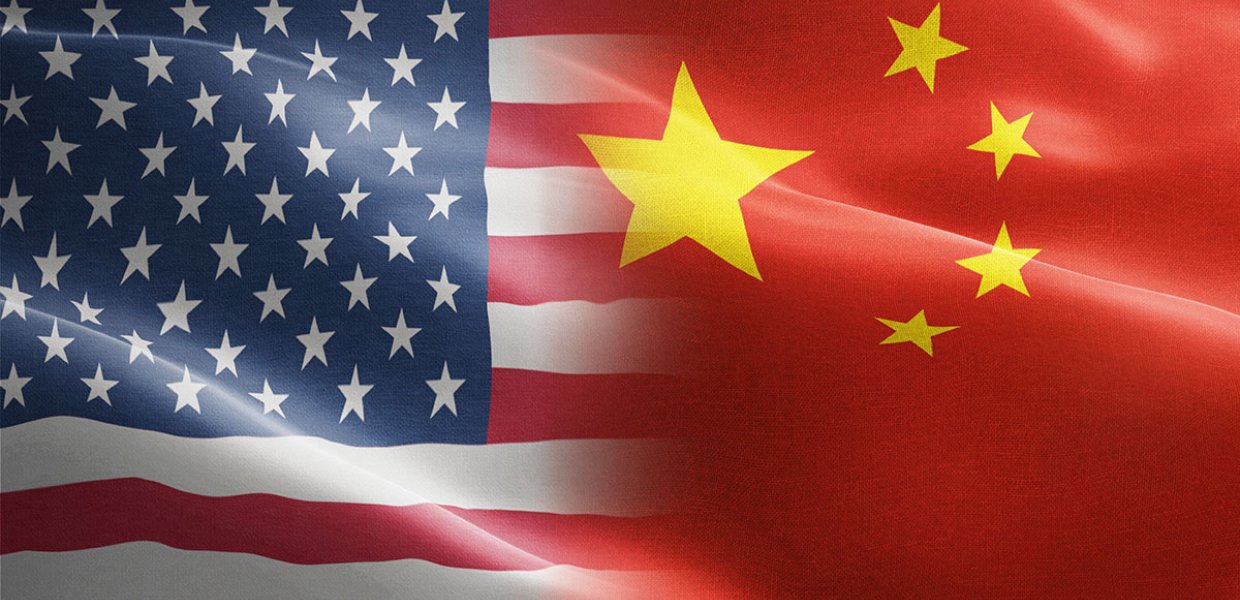In late February, as the CDC initially began warning Americans to prepare for the coronavirus’ spread to the United States, Clayton Dube spoke with NPR-affiliate KCRW’s Madeline Brand about the possible economic implications of China closing manufacturing in response to the virus.
“Much of China has been shut down for quite some time — that’s going to impact supply chains,” said Dube, director of the USC U.S.-China Institute. He cited the smartphone, tablet, drug and auto parts sectors as particularly vulnerable. “All kinds of things are being disrupted by the shutdown.”
Since then, Dube has found that his expertise continues to be in high demand as students, scholars and the broader public seek to understand the evolving scope of the coronavirus’ impact.
Recently, Dube joined Clinical Professor of Communication Robert Scheer’s “Media and Society” class via Zoom. He discussed how the climate of anti-Chinese xenophobia in the U.S. — including how President Donald Trump and others in his administration are referring to the pathogen as the “China virus” — is affecting the substance of the relationship between the two countries.
We spoke with Dube to delve further into the complexities surrounding U.S.-China relations during this unprecedented time.
What historical context is most helpful for understanding how the pandemic fits into relations between the United States and China?
The coronavirus crisis is coming against the backdrop of an increasingly tense relationship — including tensions within the United States directed not just at Chinese or Chinese American people, but anybody who might be thought to look Chinese.
This is not the first time this kind of thing has developed. In the 19th century, “health” worries were one of the big issues that folks who wanted to exclude Chinese from the United States pushed — and that’s a movement that began in California. It ultimately led to the Chinese Exclusion Act of 1882 that prevented Chinese from coming to the United States. They were the first people to be banned from this country by legislation. It built on the “othering” of migrants from China. And that didn’t end until China was an ally of the United States against Japan in World War II — when those of Japanese descent, including native-born American citizens, were sent to camps based on who they were, not on anything they had done.
In the context of greater U.S.-China tensions, there’s polling data from Pew and Gallup that shows that China is plummeting in the opinion of many Americans, and if you track that, it’s very much due to the influence of President Trump. His impact is pretty clear, particularly in hardening Republican views. What really worries me is that these polls were from March 2019. Polls being done right now I expect would be even more negative. It’s worth noting that some in both parties advocate for a harder line towards China.
So, the administration has been driving a confrontational stance with China for some time.
Right, and in that context, these battles over what to call the virus make sense. There are two competing apparatuses here. You’ve got the White House, which, until late March, was hammering away at calling it the “China virus” — and the State Department is still using Wuhan or China virus. And then you’ve got the Chinese government, at the very top, putting out the idea that maybe this didn’t originate in China, that maybe it’s part of a conspiracy by the United States. Both sides are eager to deflect criticism that they were slow to take effective action against the spread of the disease.
With this, xenophobia has risen in both countries. So, it’s a very tense time. The bigots are few, but they’re loud. In this great-power competition, it’s distressing to see some engaging in ethnic stereotypes and scapegoating, either American or Chinese.
A great deal of your institute’s work is fostering cooperation between scholars and experts in the two countries, even during times of heightened tension. Is that sort of cooperation still happening?
Yes, even while all this is going on, we are still seeing scientific collaboration between the two countries, which might ultimately lead to better tests, treatments and potentially vaccines. You’ve got sane, scientific voices in both places pushing back against bigoted nonsense and conspiracy theories. Rhetoric could get in the way of the science, but it hasn’t yet. The scientists have been focused, not on the politics, but on the mechanics of what this virus is, how it works, and how its threat can be minimized.
What do you believe will be the eventual impact of the pandemic on U.S.-China relations?
Our current national security strategy characterizes China as a threat that has exploited our openness to its advantage. Now, Trump doesn’t do this, but there are some people around Trump who talk about the United States “decoupling” from China. I hope that one of the outcomes of both this administration’s trade war with China and coronavirus is that Americans realize how interconnected we are with China, and that this interconnectedness doesn’t only benefit China. Yes, things like intellectual property theft and economic espionage by China are real threats, but there are a lot of benefits that come from our two countries working together. If we just focus on the risks, we may end up making policy decisions that mean we can’t enjoy the benefits.
